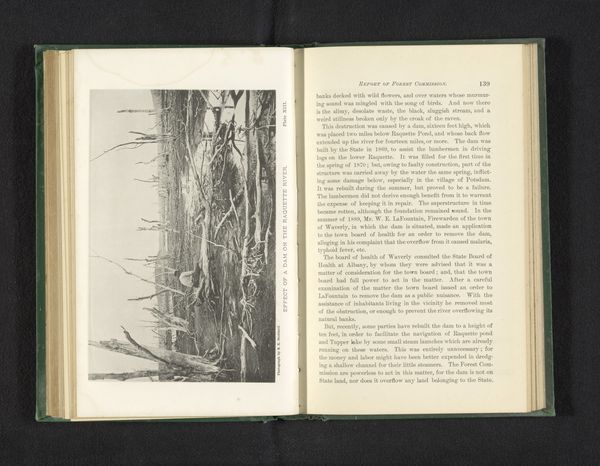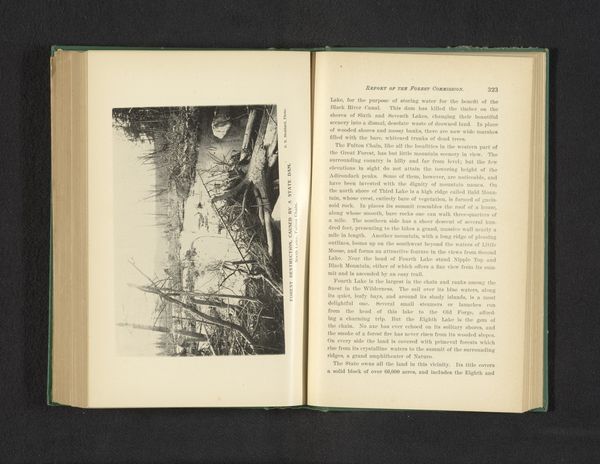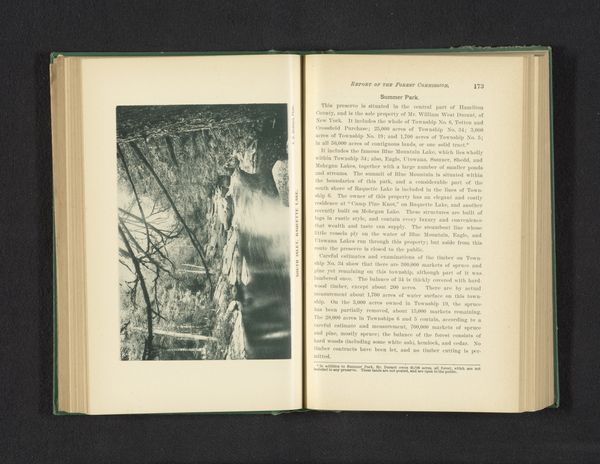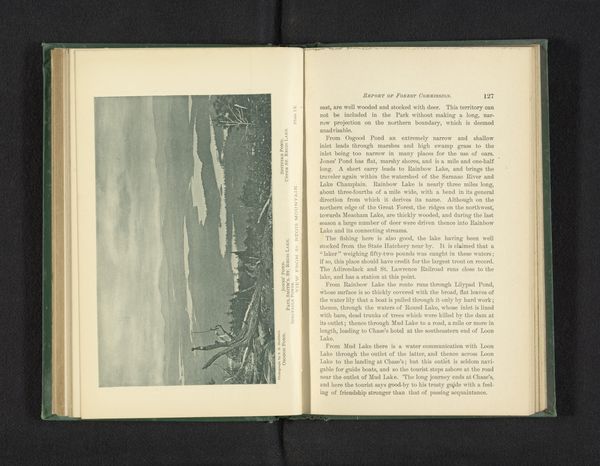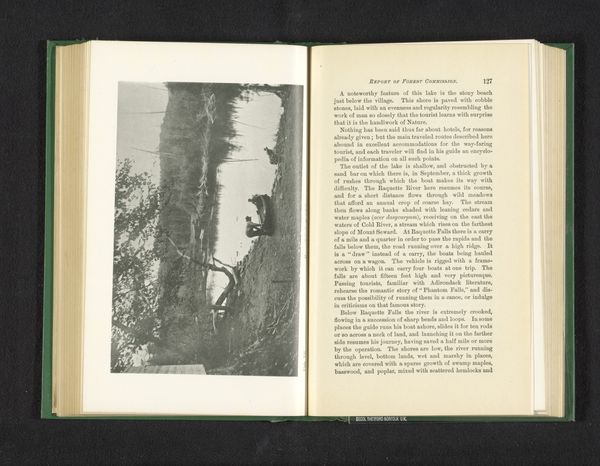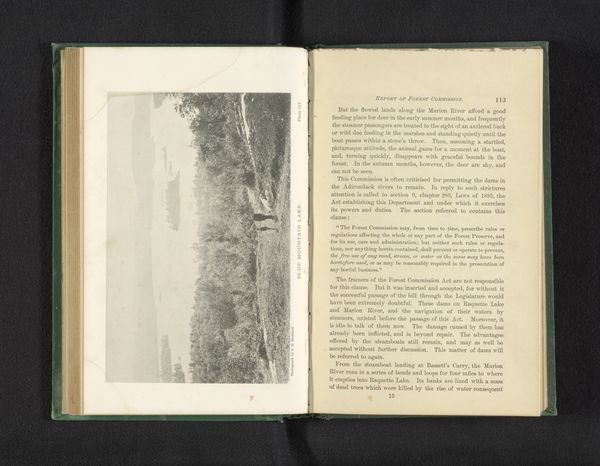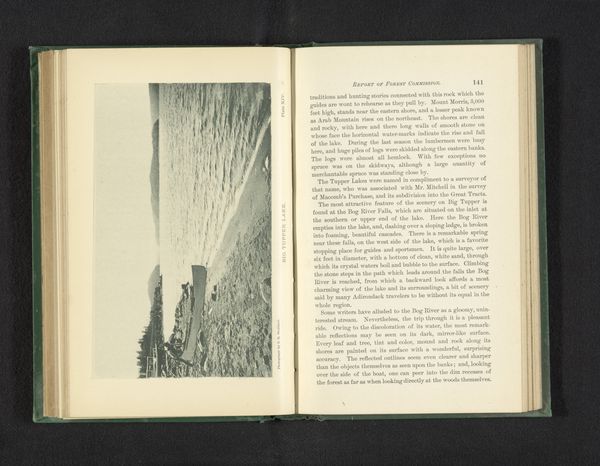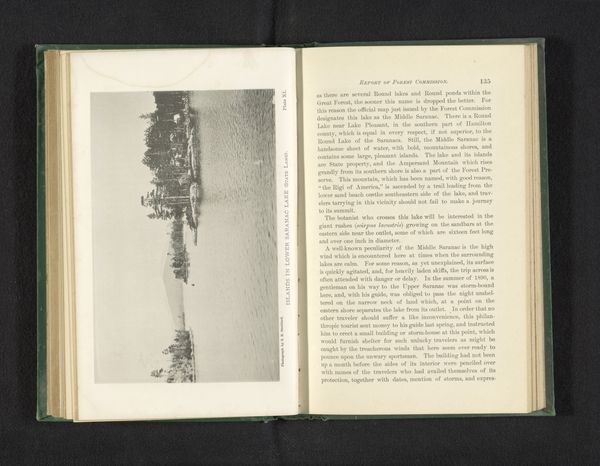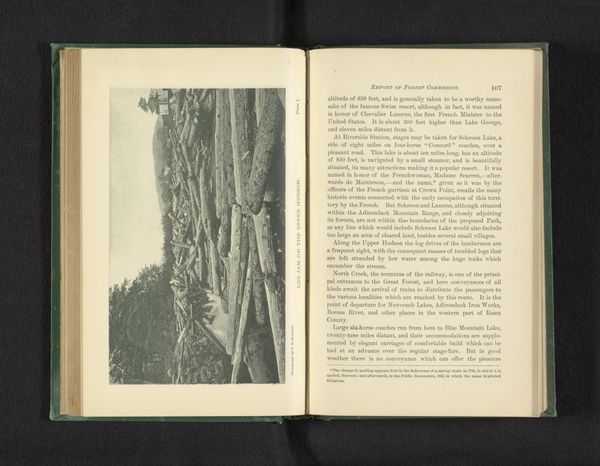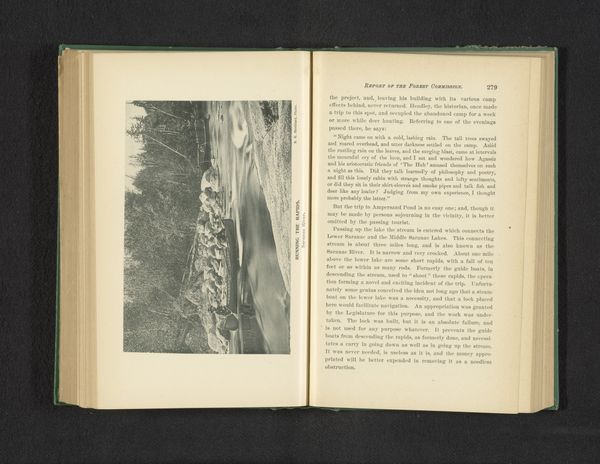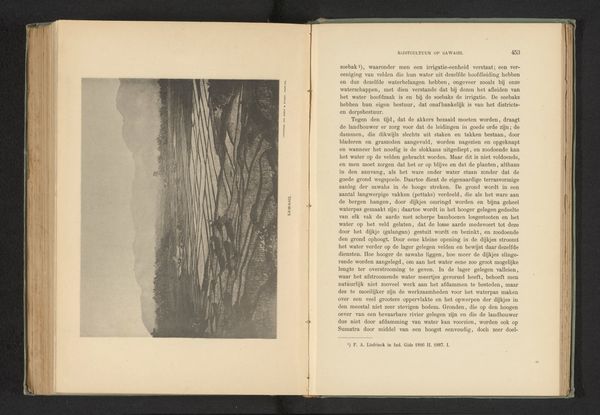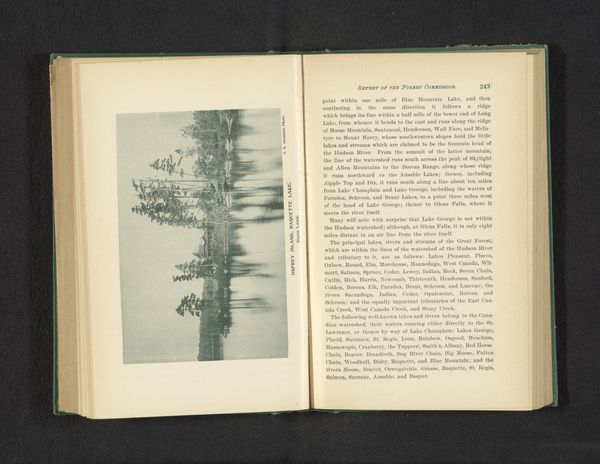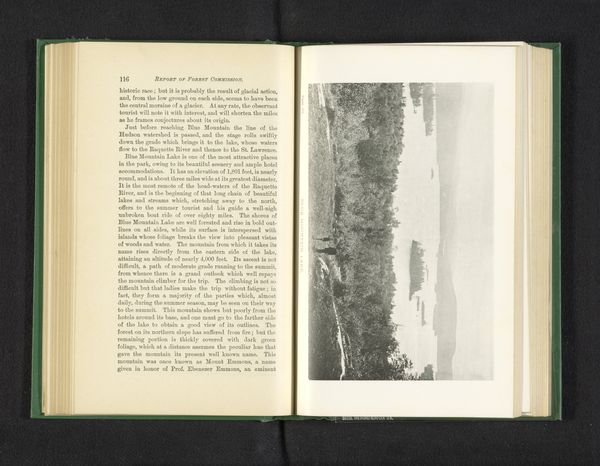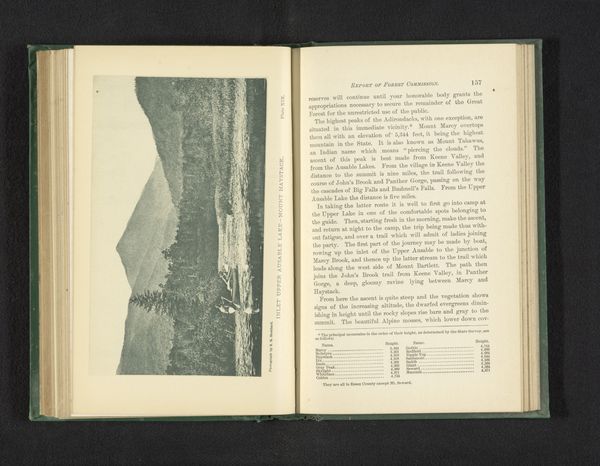
print, photography, gelatin-silver-print, albumen-print
# print
#
landscape
#
river
#
photography
#
gelatin-silver-print
#
albumen-print
#
realism
Dimensions: height 112 mm, width 165 mm
Copyright: Rijks Museum: Open Domain
Curator: Looking at this photograph, I'm struck by the raw, almost chaotic, energy it possesses. Editor: It's a striking visual document. This is an albumen print from 1894, part of a larger work titled “Driving Logs” by G.H. Rison. What grabs your attention specifically? Curator: The jumbled logs filling the river, really. They are chaotically arranged but powerfully direct one's eye to the background. It suggests a brutal beauty to me—a kind of forced march through the landscape. Do you see that here as well? Editor: Absolutely. We should remember this image comes from a time of rapid industrial expansion. These logs represent both prosperity and, from a certain perspective, exploitation. Rivers served as crucial arteries for industry and commerce, facilitating the movement of lumber and goods across vast distances. It served both as the road and method of transportation. Curator: I find myself thinking about the lives involved in such work. One could be lost beneath such a moving mountain. There's also something about the monochromatic palette that accentuates this, adding to that sense of solemn labor. Editor: Exactly. The tones highlight that labor element while also demonstrating photographic skill, it manages to offer realism with visual dynamism. The late 19th century was fascinated with capturing the reality of work, to visualize and catalogue industry for both economic purposes and even civic and state displays. It makes one question the human and environmental costs behind economic progress. Curator: So true, I am always wrestling with that ambivalence! Looking at the skeletal trees on the distant shoreline it serves almost as a reminder of loss, of what was taken. Editor: Which resonates, really. This image then acts not only as a record of a moment, but it invites contemplation. It leaves us to consider our ongoing relationship with our natural world. Curator: And maybe reconsider our definition of progress itself.
Comments
No comments
Be the first to comment and join the conversation on the ultimate creative platform.
